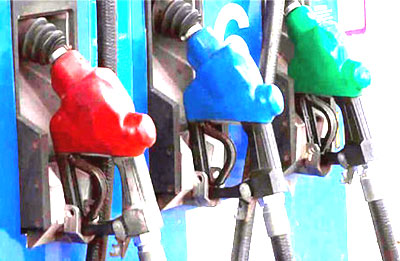
Growing Saudi output threatens Asian glut
Singapore, December 18, 2012
A huge increase in Saudi Arabia's capacity to produce cleaner diesel will reduce its reliance on fuel imports from next year, forcing current suppliers of the fuel to find new buyers in an over-supplied Asian market, said experts.
The majority of new refineries and upgrade projects in the Middle East are designed to produce ultra-low sulphur diesel that meets European environmental standards, so they can export some of it to Europe or Asia.
The multi-billion dollar investments are also likely to transform fuel trade flows in the Gulf as the extra capacity will allow Organization of the Petroleum Exporting Countries (Opec) heavyweight Saudi Arabia to reduce its diesel imports and even become a net exporter in winter when its own fuel needs are lower.
State-run Saudi Aramco's Jubail joint venture with France's Total, the first of a trio of 400,000 barrels per day (bpd) refineries due to open over the next five years, will refine Saudi heavy crude into fuels ranging from gasoil, including diesel, to gasoline and petroleum coke for domestic consumption and export.
Jubail alone is expected to increase Saudi cleaner diesel production capacity by around 176,000 bpd once it is fully operational, while two more projects are expected to boost Saudi diesel capacity by a total of 461,000 bpd by 2017.
"Saudi Arabia has been a substantial net importer of gasoil for several years, but as Jubail is commissioned in 2013, this trend should reverse itself by the end of the year if not earlier," remarked Robert Smith, a consultant at FGE Energy.
Saudi Arabia has historically been short of gasoline and gasoil. Its petro-dollar fueled economy and growing population has rapidly driven up internal demand, especially when power generation surges in the hot summer months from May to August.
The world's biggest crude oil exporter imported an average of 243,000 bpd of gasoil/diesel in the peak demand month of July this year, compared with a record high of 290,000 bpd in July 2011, according to official Saudi data.
The majority of its fuel imports are met by other Gulf producers, or by suppliers from India and Singapore.
The startup of the three refineries will nearly double Saudi diesel output, helping it become a net exporter in the cooler months. Its diesel imports will not stop completely, analysts say, due to rising demand and because the high-quality diesel the refineries will produce will not be used in power plants.
Nevertheless, refiners in Asia will have to find alternative buyers for fuel they have been selling to Saudi Arabia in increasing quantities over the last five years, traders say.
"The whole trading pattern is going to change dramatically in a few years, once all the new refining capacity comes online," a Singapore-based trader said.
Neighbouring Opec producer, the UAE, is also planning a big expansion in diesel production, with Abu Dhabi Refining Company (Takreer) working to more than double capacity at its existing 415,000 bpd refinery at Ruwais.
The boom in Gulf product exports aimed at Europe and Asia will further intensify competition between suppliers.
India currently exports about 1.5-1.7 million tonnes of diesel a month, mostly to Europe and Africa, because giant Indian refiner Reliance is able to meet Europe's stringent diesel specifications.
New refineries starting up in two major Middle Eastern crude oil producing countries pose a big threat to Indian refiners that sell finished products to Europe, with the competitive advantage of two of the refineries on the Red Sea coast of Saudi Arabia further reinforced by lower shipping costs, traders said.
In the Gulf, where shipping costs to Europe are also lower than from India, Abu Dhabi National Oil Company (Adnoc) is already planning to offer diesel with a sulphur content of 10 parts per million (ppm) for 2013 contracts, making it the first Gulf producer to export ultra-low sulphur diesel on a term basis.
Traders say Saudi Aramco Total Refinery and Petrochemicals Company (Satorp), the joint venture that owns the Jubail refinery, will also be offering cleaner diesel for export as early as the second quarter of next year.
"What we might see happen in the short term is Reliance shifting its barrels into tanks, which could depress margins, and eventually it might adjust its production to maximise gasoline or higher sulphur gasoil," a source in India said.
With East African demand rising due a lack of refining capacity, India could divert more of its production to that region, another India-based source said.
In the short term, some of the extra barrels from the Middle East could be shipped into the Singapore trading market to feed growing demand from Australia and compensate for fewer exports from Japan, said Victor Shum, managing director of downstream energy consulting at IHS in Singapore.
Australia has been importing more diesel after shutting old refineries, while Japan is likely to cut diesel exports from next year.
"So there will be some re-balancing but there will still be a lot of competition for markets simply because it is still going to be a relatively weak global demand market," Shum said.
With demand from Pakistan, Bangladesh and Sri Lanka also rising, long term growth in domestic demand on the Indian sub-continent could soak up any Indian diesel displaced by increased exports from Gulf members of the Opec.
More Middle East supplies sent to Europe could also pressure refineries in the Mediterranean, which are already struggling with low profit margins for refining increasingly costly crude into vehicle fuels for a shrinking EU market.
"Europe's already receiving diesel from the United States and Russia, so this could put pressure on refinery margins in the Med," a middle distillates trader said.
"But overall, Asian diesel margins will probably come under pressure from all the additional diesel barrels expected to flood the market, as I don't think the increase in demand can keep pace."-Reuters







